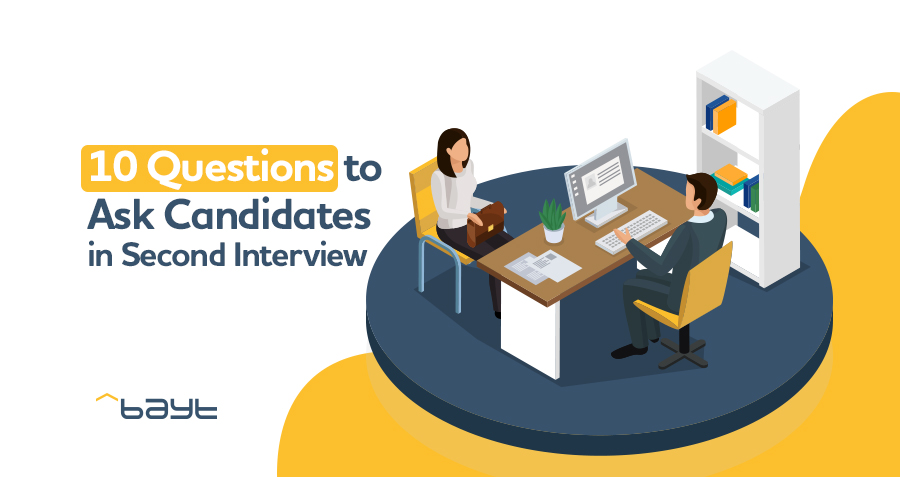
Preparing for the next stage of shortlisting candidates but don’t know what are good second-interview questions to ask?
As an employer, we understand that the hiring process can be time-consuming and often involves several rounds of interviews. Some candidates get called for a second interview because the hiring manager wants to know if they’re a good culture fit. The impact of a positive interview experience for a candidate goes a long way.
Here, we’ll share some of our go-to second interview questions and why we ask them. We’ll also provide some insight into what we’re looking for in a candidate’s responses. Whether you’re a hiring manager or an HR professional, keep reading for tips on making the most of these quickfire questions in your hiring process. If you’re on the first interview, you can check our list of 8 most popular interview questions to prepare.
Let’s go through some second-round interview questions you can potentially ask candidates.
Employers sometimes ask candidates to give an instance where they had to adjust to rapid shifts in a project’s priorities. It helps them learn about their flexibility and pressure-handling abilities.
Changes like budget cuts, deadline shifts, or client needs can disrupt even the best-planned projects. The candidate’s response demonstrates how they deal with ambiguity, prioritize their work, and collaborate with others.
A great way to assess a candidate’s time management and prioritization skills is by asking how they would handle multiple tasks with the same deadline. In most careers, it’s necessary to balance conflicting expectations.
Therefore, this question can gauge how effectively they handle pressure. Their response also demonstrates their communication abilities while handling stakeholder expectations.
A crucial question interviewers should ask in a second interview is for candidates to name competitors and explain what sets their company apart. This makes it easier to gauge how well candidates can articulate the company’s distinctive value proposition and conduct effective research and analysis.
It’s also an effective way to assess their industry and market knowledge and communication skills.
This question helps employers see if candidates understand their organization’s values and goals and if they align with their own. If candidates can articulate it well, it shows they’re genuinely interested and can connect their work to the company’s purpose, which is vital for building a motivated team. It also shows that the candidate made an effort to research the company and its culture.
It’s crucial to know if a candidate has used your products/services before. They’ll likely be more enthusiastic and have suggestions for improving them.
Additionally, their response may demonstrate their capacity for empathizing with your audience and openness to discovering more about your company.

To evaluate a candidate’s communication and interpersonal abilities, ask them to describe giving constructive criticism to a colleague. It reveals whether they can have difficult conversations with patience and empathy.
The response reveals their emotional intelligence, which is important in building an effective team.
Asking a candidate why they’re attracted to your company is an opportunity to learn about their values and priorities.
They get a chance to market themselves, and you get a chance to learn why they are doing it. It aids in assisting you in making an informed hiring choice based on what is most important to them.
Knowing a candidate’s preferred leadership style is essential to assessing whether it fits with the culture of your business. It guarantees they are motivated and supported at work, enabling them to give their best effort.
Knowing what works best for each individual is essential because different people thrive under various management philosophies.
During interviews, open-ended questions can help candidates relax and demonstrate their skills.
It provides information about their capacity for problem-solving and stress management. They can share their lessons learned and think back on past experiences.
Candidates might want to review their initial interview’s questions or responses. It is crucial to give them the opportunity to answer any questions or concerns.
You can demonstrate that you value their opinions and are dedicated to giving them the information they require by asking if there is anything they want to go over again.
In conclusion, calling back candidates for a second interview is pretty common, particularly to see if they’re a culture fit. We assembled a list of 10 questions that can provide valuable insights into a candidate’s skills, experience, and personality. By using open-ended questions, you can help put candidates at ease, showcase their abilities, and ensure that you make informed hiring decisions. Learn about the ways you can optimize a candidate’s interview experience.